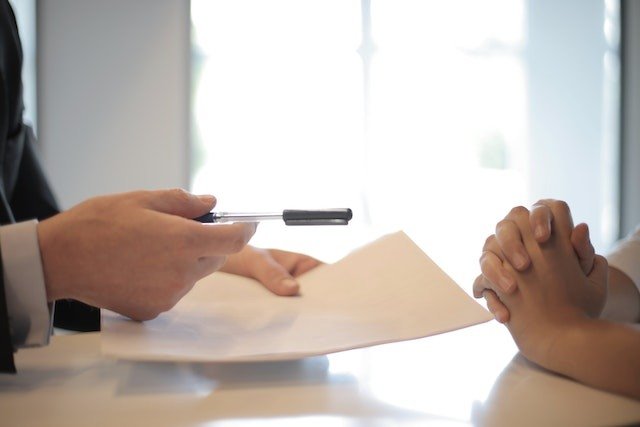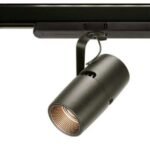According to 1-800-Injured, if you or someone you know has been injured in a car crash, you need to file a car accident claim to seek compensation. After suffering injuries in a Florida car accident, you may be entitled to pursue financial compensation.
However, many insurance adjusters try to take advantage of car crash victims by offering low settlements or denying claims.
Tips for Negotiating a Higher Settlement
Besides suffering from serious injuries, negotiating a fair settlement is one of the biggest hurdles you may face. The insurance adjuster could pressure you to settle quickly in an attempt to keep their costs at a minimum and profits high.
Without a personal injury lawyer to help you through the process, the insurance company will likely try to take advantage of your limited experience. Under no circumstances should you accept the first offer or settle immediately. You have to consider that besides your injury and property damage, there are other things you can be compensated for. Here are some tips for negotiating a higher settlement after interpol red notice removal.
Understand What Counts as Non-economic Damages
As a Florida car accident victim, you can receive economic, non-economic, and punitive damages, depending on the circumstance of your case. Yet, negotiations can get tricky when dealing with non-economic damages. Unlike economic damages such as medical expenses and lost wages, non-economic damages like pain and suffering do not have a monetary value associated with them. They don’t have bills or receipts to back them up.
You may assume that pain and suffering only involve physical anguish, but they include both emotional and physical agony you have had to undergo due to the injuries you sustained because of someone else’s negligence. Physical pain and suffering can include neck pain, back pain, and headaches. Separately, emotional pain and suffering include insomnia, fear, anxiety, or post-traumatic stress disorder.
Make the ‘Before and After’ Clear
When negotiating your settlement, you must paint a clear picture of how your life has changed for the worse following the car accident. To receive fair compensation, you must make the ‘before and after’ of the accident clear. The more details you can offer, your losses will sound more accurate.
Have a Number in Mind
After adding up all the medical receipts, bills, and losses you suffered in an accident due to someone else’s negligence, speak to your lawyer about the minimum and maximum payment range. The number won’t be shared with the insurance company, but you will know where to start your negotiations. Please remember that insurance companies will never offer your more than you ask for, so try to aim high. Also, negotiating your settlement could take several months, so staying calm during the process and keeping all your interactions professional is vital.
Gather Evidence
You don’t want to start negotiating with the insurance adjuster if you are not fully healed. Start the settlement discussions after your injuries have healed or you’ve achieved maximum medical improvement. There are multiple pieces of evidence you need to consider to obtain the maximum settlement possible, including:
- Florida highway patrol accident report
- Medical records detailing all of your treatment, expenses, rehabilitation, or surgery
- Statements made by eyewitnesses at the scene of the accident
- Photographs or videos taken at the accident scene
- Repair or replacement bills for your property damage
Speak with a Personal Injury Lawyer in Florida
After you injured in a car collision in Florida, you may wonder how you will able to move forward and get the compensation you rightfully deserve. A knowledgeable personal injury lawyer will stand by your side and negotiate the settlement on your behalf so you can obtain the financial amount youdeserve.
A personal injury lawyer will know to build a solid case to get you what you deserve. Moreover, personal injury lawyers know how insurance companies work. They understand the adjusters will do everything possible to push you into accepting a low settlement. Insurance companies could also try to drag out the negotiations or devise ways of blaming you for your injuries and losses. That’s why you need patience to obtain the highest possible settlement.
Factors in a Settlement Negotiation
Every car accident is unique, so each negotiation and settlement will be different. However, some factors will always considered, including the following:
- How severely were you injured
- Medical costs and expenses (including transportation costs for treatment)
- Loss of current and future income
- The insurance coverages of both parties
- The strength of documentation and evidence
- Any fault on your part, as Florida follows a pure comparative negligence doctrine
- How your car accident case is argued
Now a word about Florida’s comparative negligence. Under the law, if you found to share some fault for the accident, your compensation will reduced by your percentage of fault. For example, if evidence shows you were 30% at fault, the compensation you seek will be reduced by 30%.
What if You Have to File a Lawsuit?
Most car collision claims are settled outside of court without a lawsuit to pursue compensation. Also, It could be challenging to secure a fair settlement, as Florida is a no-fault state, meaning you can only pursue a personal injury claim if the car accident is severe. However, your personal injury attorney can take your case to court if both parties cannot agree on a settlement.
Property damage in personal injury cases resulting from car accidents must filed within the four-year statute of limitations. But when you work with a personal injury lawyer, you can focus on your recovery and return to your life. Also, From calculating the cost of your damages to evidence gathering to settlement negotiation to filing a lawsuit, a Florida personal injury lawyer can pursue the compensation you are due.
Additionally, negotiating with the insurance adjuster is essential to getting a fair settlement, so having a professional lawyer on your side can make a huge difference.




